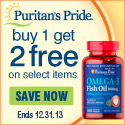When it comes to eating healthy, fresher is almost always better. In some cases, however, it is impossible to cook fresh foods every night. For people on the go, frozen foods can be healthy alternatives to fresh products.
While there is no substitute for a well balanced, fresh cooked meal using plenty of fresh and healthy ingredients, healthy frozen meals can provide a quick and easy alternative for busy people and those who do not have time to cook meals from scratch.
No matter what type of diet you are following, chances are there is a frozen meal available to meet your needs. From low fat to heart healthy to vegetarian meals, there are a great many frozen dinners at the local supermarket or grocery store.
READ THE NUTRITIONAL LABELS!
While frozen foods can be very healthy, it is important to keep a close eye out for potentially unhealthy ingredients as you shop. In particular, many frozen and prepared foods have unacceptably high levels of sodium. In addition, many frozen dinners, even those that use the healthiest ingredients, may use preservatives to which some people may be sensitive.
When choosing from among the many brands and varieties of frozen foods on the grocery store shelf, it is important to read the nutritional labels very carefully. These government mandated nutritional labels contain a wealth of information, but it is important to understand how to read them.
Nutritional labels provide information on such important things as calorie count, number of fat grams and amount of sodium, as well as the percentages of various vitamins and minerals the food contains.
When examining those nutritional labels, it is important to pay close attention to the portion size. Even a small frozen dinner can be equal to two servings, so if you plan to eat the whole thing yourself, be sure to double the calories, sodium and fat content numbers.
When looking at the amount of fat in a frozen dinner, it is important to follow the widely accepted recommendations to keep the total amount of daily fat to less than 30% of daily calories. Luckily, the new nutritional labels mandated by the government makes this calculation a lot easier. Food manufacturers are required to list the amount of fat their foods contain as a percentage of an average daily diet, so it is easy to tell at a glance if a particular frozen food is a healthy, low fat choice.
In addition to keeping total fat to less than 30% of total calories, it is important to keep saturated fat levels to less than 10% of daily calories. For sodium levels, it is important to limit the amount of sodium to less than 200 milligrams for every 100 calories of food.
In addition, most experts recommend keeping your daily sodium intake to less than 2400 milligrams per day. Read the labels on all frozen foods, even if they are labeled as healthy. While claiming the healthy label obligates food manufacturers to follow certain guidelines, it is still important to review the labels in order to choose the healthiest frozen foods.
When choosing the healthiest meals from among the hundreds of varieties at the average supermarket or grocery store, it is a good idea to choose those that contain at least a half cup of vegetables, fruits or beans. Doing so will help you ensure that the meal you choose is healthy and nutritious.
Finally, since you are in the grocery store already, why not make a stop at the salad bar for a healthy addition to your frozen entrée. Many large grocery store chains have installed wonderful salad bars stocked full of the freshest fruits, vegetables and garnishes, as well as a great selection of low fat and nonfat salad dressings.





















0 comments:
Post a Comment